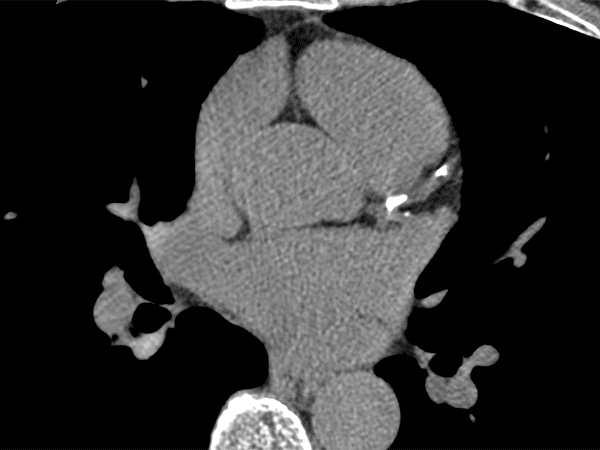Coronary Artery Calcium Score Tests in Bangkok
The Coronary Calcium Scan has been around for many years. Lately, it is becoming more popular as a cost-effective, non-invasive and reliable test to detect or reject the presence of coronary plaque, of which calcium can be a component. Coronary Calcium Scan tests are available at quite a few hospitals in Bangkok, sometimes they are even promoted. Prices vary between 4,000 and 10,000 Thai Baht, and usually will necessitate a consult with a cardiologist.
The Coronary Calcium Scan is a type of CT scan that looks for calcium in the coronary arteries, the arteries that supply the heart itself with blood, and are, when occluded or narrowed, cause angina pectoris, 'heart attacks', myocardial infarctions. The calcium the scan is looking for is part of plaque, a waxy substance at first, that grows slowly and over time hardens and can become calcified. Simplified, the presence of calcium in the coronary arteries, indicates that something has been going on, that inflammation occurred, and that plaque is present. It does not necessarily means that significant narrowing is present, since blood vessels initially can remodel to accommodate blood flow.
The Coronary Calcium Scan is a non-invasive test, and should not be confused with the more invasive test named CT-angiogram, which involved injection of contrast media, gives a view of the coronary arteries and its narrowings. The CAC (coronary artery calcium) test takes only a few minutes. You lie down on the 'CT-table'. Images are made at different slices through the chest, while you hear the apparatus make spinning noises. In the process, also a chest X-ray is made.

Image (with permission) from a CAC-test.The white spots : on top part of the breastbone, at bottom : the vertebrae, the white spots right of the middle in the image, indicate calcium in the coronary arteries (LAD)
As a result of the test, a calcium score (often called Agatston score, potentially a variation thereof) is made which quantifies the amount of calcium in the coronary arteries. If all is well, your calcium score will actually be 0. You may be classified as having a score of no, minimal (1-10), mild (11-100), moderate (101-400) or severe (>400) calcium presence. The test may also give information about which coronary arteries are affected, and which are not (but the test does not give a clear picture of narrowings as the CT-angiogram does).
With percentile data, you will also be told, how many people your age have lower or higher calcium scores. For example, if your percentile is equal to 30, it means 30 % of persons your age, have a lower score, and 70% have a higher score.
The Coronary Calcium Scan can give very useful information. It is most often recommended for persons at intermediate risk for cardiovascular disease, who are not having symptomes (smokers, poor lipid profile, diabetics, hypertensive persons, etc.). Young people with no symptoms, or people who already diagnosed with disease, are not directly candidates.
It is often stated, that a test should only be carried out, if action will be taken depending on the results. This also applies for the CAC-test. As suggested from the description above, often it will not be quite clear in advance, what the results will be (in asymptomatic people). If a high score is present, medication may be prescribed to prevent further inflammation and calcification in the future.
Importantly, and this is one of the reasons the test can be very useful, a ZERO score, can be very reassuring, and may save the scanned person from having to take numerous medications. We have to warn here though, that having a score test of 0, while reassuring (statistically, you have a much better chance of having no significant coronary heart disease in years to come, compared to people with a positive test), does not completely rule out plaque formation, since the plaque may not yet have been calcified.
Usefulness of CAC-test
When you go for a general medical check-up or for a heart evaluation, often a batch of tests is performed, including X-ray, EKG, blood tests (with lipid profile, fasting glucose level). Depending the results, and your personal story (are you a smoker, is there heart disease in the family etc.), you will be told you are at low, moderate, of high risk of having or developing coronary artery disease. You may be at high risk when you are a diabetic smoker, and this is certainly statistically true for people as a group with a similar profile. For an individual, you may have a higher risk, but you still may be having completely normal coronaries. We all have heard the stories of heavy smokers, never exercising, with unhealthy diets, who lived to be a 100 years old. Statistics often are a poor guide for individuals.
On the other hand. If Coronary Artery Calcification is present, you know you have or had inflammation of the blood vessels, with subsequent calcification. There is no way around it. As such, it may be an eye opener, and direct afflicted persons to start taking care of their cardiac health. A negative scan may also be very reassuring, but does not completely rule out the presence of uncalcified coronary plaque.

